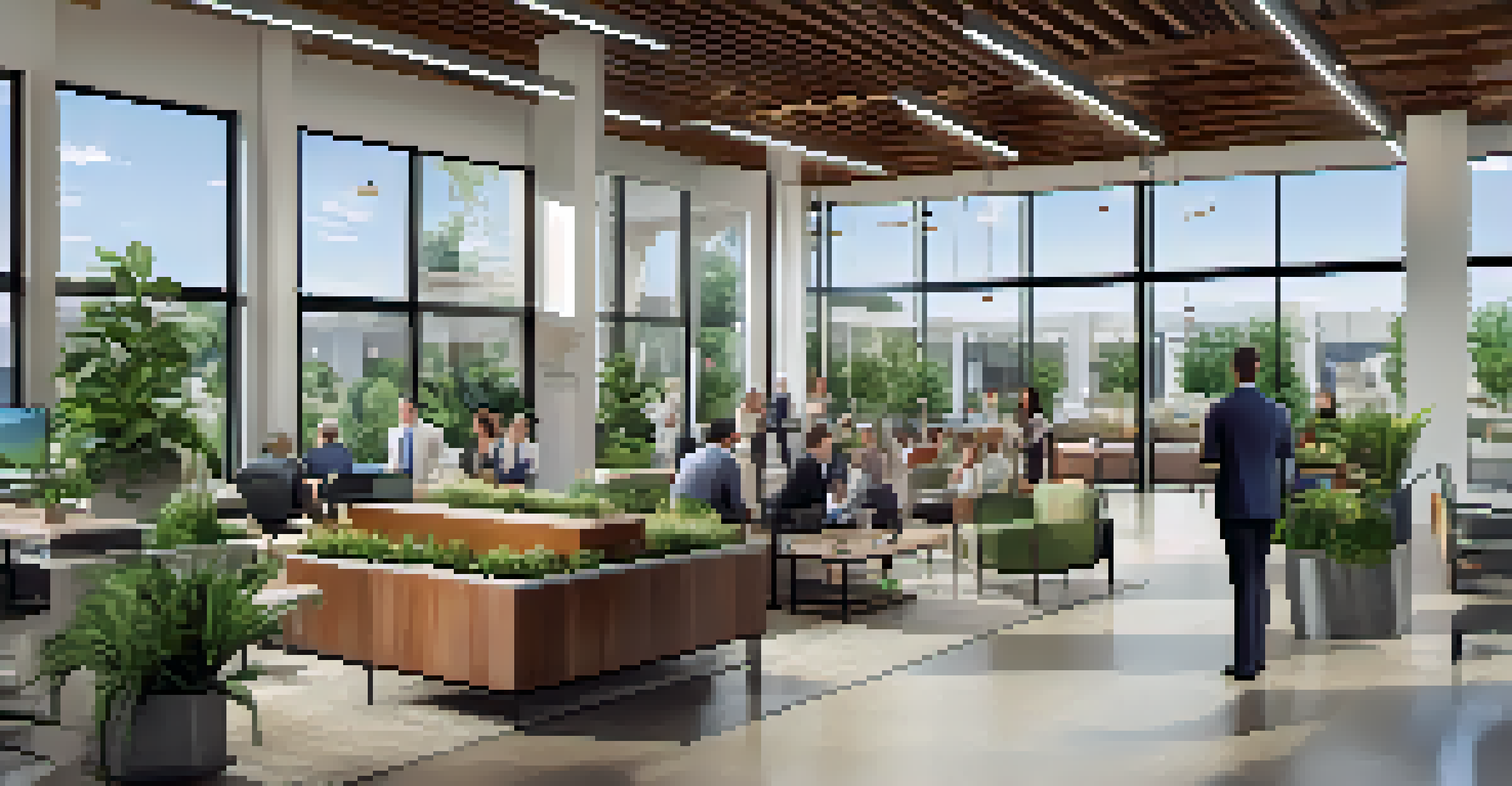The Shift to Hyperlocal Marketing in Real Estate

Understanding Hyperlocal Marketing in Real Estate
Hyperlocal marketing focuses on targeting specific geographic areas to reach potential buyers and sellers. In real estate, this means tailoring marketing efforts to neighborhoods and communities, rather than broader markets. By honing in on local dynamics, agents can create more relevant messages that resonate with the audience.
The best marketing doesn't feel like marketing.
For instance, a real estate agent in a bustling urban area might highlight local parks, schools, and community events in their marketing materials. This localized approach not only showcases properties but also builds a sense of community. It's about creating a narrative that potential clients can connect with on a personal level.
Additionally, hyperlocal marketing leverages digital tools like social media and local SEO to enhance visibility. By optimizing for local search terms, agents can ensure they're found by those searching specifically in their area. This strategic focus is transforming how real estate professionals connect with their audience.
The Benefits of Hyperlocal Marketing
One of the major benefits of hyperlocal marketing is increased engagement with potential clients. When marketing materials speak directly to the needs and interests of a specific community, they are more likely to capture attention. This personalized approach fosters trust and builds relationships, crucial elements in the real estate industry.

Moreover, hyperlocal strategies often result in higher conversion rates. When clients feel that an agent understands their neighborhood intimately, they are more likely to choose them over competitors. This local expertise can be a game-changer when it comes to closing deals.
Lastly, hyperlocal marketing can lead to cost savings. Instead of casting a wide net with a generic marketing campaign, agents can focus their resources on targeted efforts that yield better results. This efficiency not only saves money but also maximizes return on investment.
Leveraging Technology for Hyperlocal Success
In today's digital age, technology plays a pivotal role in hyperlocal marketing. Tools like Google My Business, social media platforms, and targeted online ads allow real estate professionals to connect with local audiences effectively. By utilizing these technologies, agents can enhance their visibility and reach potential clients where they spend time online.
People don’t buy what you do; they buy why you do it.
For example, engaging with local community groups on platforms like Facebook can create a sense of belonging and trust. Sharing valuable content about the neighborhood, such as market trends or local events, positions agents as knowledgeable resources within the community. This not only builds credibility but also encourages referrals.
Furthermore, data analytics can aid in understanding local buyer behavior. By analyzing trends and preferences in specific areas, agents can tailor their marketing strategies even further. This data-driven approach ensures that efforts are not just targeted but also relevant to the audience.
Creating Community Connections
Building connections within the local community is essential for hyperlocal marketing success. Real estate agents can establish themselves as community leaders by participating in local events and supporting neighborhood initiatives. This visibility fosters goodwill and a positive reputation, making potential clients more likely to reach out.
For instance, sponsoring a local sports team or hosting a community cleanup can create strong ties with residents. These genuine efforts demonstrate a commitment to the community, setting agents apart from competitors who may only focus on sales. It’s about being present in a way that resonates with local values.
Additionally, collaborating with local businesses can enhance visibility and create mutual benefits. By partnering with cafes, shops, or service providers, agents can cross-promote each other, amplifying reach and engagement. This symbiotic relationship can be a powerful tool in hyperlocal marketing.
The Role of Local SEO in Hyperlocal Marketing
Local SEO is crucial in ensuring that real estate agents are discoverable by potential clients in their specific areas. By optimizing their websites for local search terms, agents can increase their chances of appearing in search results when someone looks for properties nearby. This targeted approach is a key component of hyperlocal marketing.
Incorporating local keywords, creating location-specific landing pages, and garnering positive reviews can significantly enhance local SEO efforts. For example, an agent specializing in a particular neighborhood should include the neighborhood's name in their website content and blog posts. This not only boosts visibility but also establishes authority in that area.
Ultimately, effective local SEO drives traffic to agents' websites, leading to more inquiries and potential leads. By focusing on the unique aspects of their local market, agents can attract clients who are specifically searching for properties in those neighborhoods.
Challenges of Implementing Hyperlocal Marketing
While hyperlocal marketing offers many benefits, it also comes with its own set of challenges. One significant hurdle is the need for agents to stay updated on local trends and community dynamics. This requires time and effort to research and engage with the community consistently.
Additionally, the competition in hyperlocal markets can be fierce. Many agents are recognizing the value of localized strategies, which means standing out becomes even more critical. Agents must find innovative ways to differentiate themselves and showcase their unique qualifications.
Lastly, measuring the effectiveness of hyperlocal marketing can be tricky. Agents need to establish clear metrics to evaluate their efforts, which might not always be straightforward in a community-focused approach. However, with the right tools and strategies, these challenges can be navigated successfully.
Future Trends in Hyperlocal Marketing for Real Estate
As the real estate landscape continues to evolve, hyperlocal marketing will likely become even more integral to success. With advancements in technology, agents will have access to more sophisticated tools for targeting and engaging local audiences. This ongoing evolution will create new opportunities for connection and relationship-building.
Moreover, the rise of remote work has shifted the way people view neighborhoods. Many individuals are prioritizing community features over mere property value, giving agents the chance to highlight local amenities in their marketing. This trend aligns perfectly with hyperlocal strategies, as agents can emphasize their expertise on community aspects.

Finally, as consumers increasingly seek authenticity, hyperlocal marketing can fulfill this desire by showcasing genuine community involvement. Agents who are transparent, approachable, and committed to their neighborhoods will resonate with clients looking for a reliable partner in their real estate journey.